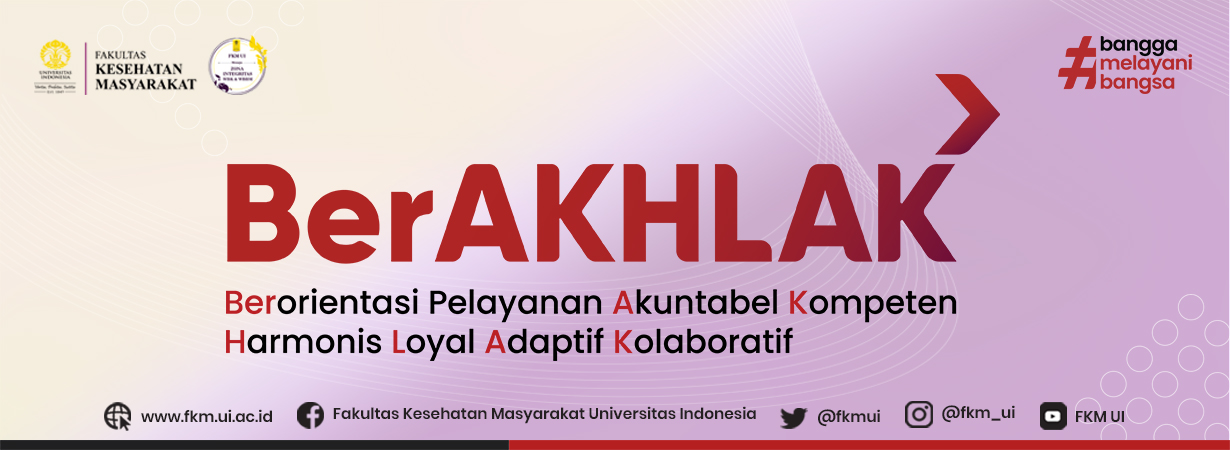
Based on data from the Ministry of Health of the Republic of Indonesia, there are 3136 hospitals in Indonesia. Hospital services have entered an era where all types of services are starting to be integrated with sophisticated and integrated technology or information systems. The development of services in hospitals must be followed by the digitalization of health services in accordance with developments in health technology which are in line with efforts to create smart hospitals. “With the existence of a smart hospital, it is hoped that services will be more optimal, effective and efficient. The Ministry of Health has developed several digitizations, one of which is through the SATUSEHAT application, telemedicine, electronic medical records, and a competency-based referral system. “All of this is done so that people have easy access and quality health services that meet national and even international standards,” said the Director of Referral Health Services, drg. Yuli Astuti S., M.Kes., in her opening speech at the Webinar “One Step Closer to Smart Hospital” Saturday, 18 November 2023 which was organized by Master of Hospital Administration Study Program (KARS) Faculty of Public Health (FPH) Universitas Indonesia (UI).
This webinar also presented the Main Director of BPJS, Prof. Dr. Ali Ghufron Mukti, Sc.Ph.D., as keynote speaker to talk about “Digitalization of BPJS Health Services in Supporting Smart Hospital Ecosystem Development”.

BPJS Health as a public legal entity directly under the president of the Republic of Indonesia has the obligation to organize Individual Health Efforts (UKP) in the National Health Insurance (JKN) program. In November 2023, the number of JKN participants will reach 256 million people or 95.71% of the total population of Indonesia. With such a large number coverage, BPJS Health needs an integrated system for all its services. “BPJS Health is committed to providing an ecosystem that supports Smart Hospitals. “Currently we have used technology in BPJS services, such as teleconsultation services, biometric fingerprint, integrated SEP, integrated queuing system, as well as information on the availability of beds and operating rooms which customers can access digitally,” said Prof. Ali Ghufron. BPJS Health also has the MobileJKN application with various features that can make it easier for people to access BPJS services.

This webinar from the KARS FPH UI Masters Study Program also held a discussion with 4 panelists. Prof. Dr. -Ing Eko Supriyanto, P.H. Eng, President of the Indonesian Association of Hospital Engineering (AHE), as the first panelist with the theme “Getting to Know Smart Hospital – Preparing Ourselves for Smart Hospital”. “Smart hospitals are defined as hospitals that are safe, high quality, secure, socially and environmentally friendly, and affordable which are implemented through digital transformation,” said Prof. Eco. Smart hospitals consist of several smart components, such as house buildings, electrical and mechanical infrastructure, infocoms (sensors, internet of things (IoT), servers, software, etc.), medical equipment, 7S (structure, strategy, management system, skills, staff, leadership style, and shared values), as well as a Balance Score Card (BSC) for finance, customers, business processes, and human resources. There are several technical requirements for smart hospital implementation that hospitals must have, starting from the electrical system to the hospital management system.
Furthermore, Dr. Agus Mutamakin, M.Sc as the Compartment and Information Data Center of the Indonesian Hospital Association (PERSI) presented material regarding “Challenges When Making Changes Towards a Smart Hospital”. According to Dr. Agus, there will always be challenges when you want to make big changes, including changes towards a smart hospital. “There are 6 challenges we are facing, namely availability and reliability of technology, implementation costs, data security and privacy, technology integration, change management, and staff training and adaptation,” explained Dr. Agus.
“Until 2022, 10 ministries and government institutions have experienced hacking. This should be a concern because cyber security has become an arsenal of weapons in geopolitical conflicts. “These cyber-attacks can be very sophisticated and carried out continuously,” said Ardi Sutedja K., S.H., MBA., Head of the Indonesia Cyber Security Forum (ICSF) in his discussion material entitled “Cyber Disruption Threats: Taxonomy in the Healthcare Industry”. For this reason, cyber security is needed which describes the company’s ability to protect and avoid cyber-crime threats. Cyber resilience is also needed, which refers to a company’s ability to mitigate damage and continue after a system or data has been compromised. Cyber security strategies are designed to minimize the risk of attacks, while cyber resilience is designed to minimize their impact. In the context of smart hospitals, electronic medical record (EMR) data is something that must be considered for security.

Julian Petrescu, MBA., Senior Engineer Intersystem, explained “Revolutionizing Healthcare: Artificial Intelligence Use Cases in Hospitals” where it was said that health service data consists of 3 pillars, namely EMR, interoperability, and standards and data coding. With the continued development of artificial intelligence (AI), health data can now be analyzed and modeled on a large scale. “AI transforms a previously passive electronic medical record system into an active information-generating system that can be acted upon and reveal hidden patterns about patients or populations. “The real implementation of the use of AI is the SATUSEHAT platform which integrates the health information system in Indonesia,” said Julian. According to him, this digital transformation is also influenced by the COVID-19 pandemic which demands global technological developments.
It is hoped that this webinar, which was attended by more than 300 participants, can improve the competency of health students so that they can later create Indonesian hospitals that are able to compete globally. (WR)

